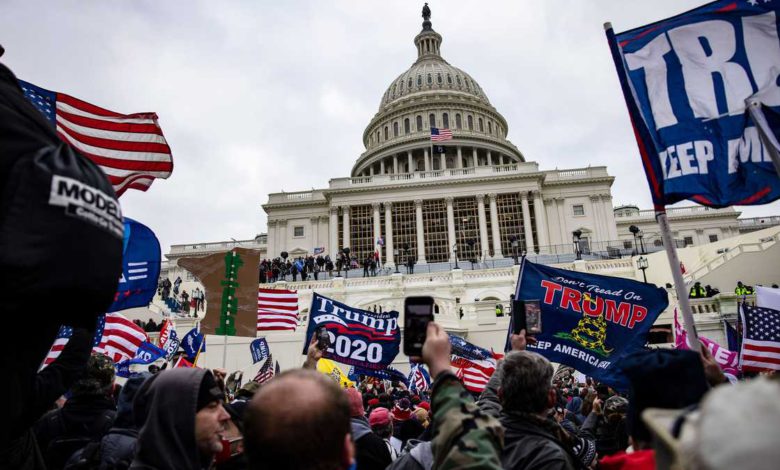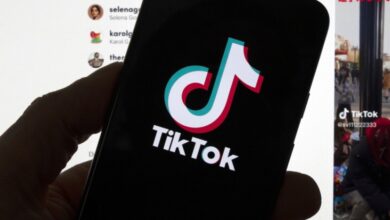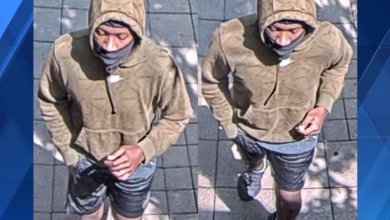

Video above: Trump officials defend their Capitol riot actionsThe top Democrat and Republican on the House Homeland Security Committee struck a deal to create a bipartisan commission to investigate the Jan. 6 attack on the Capitol, breaking a months-long logjam between House leaders about how to structure the independent panel.House Homeland Security Chairman Bennie Thompson of Mississippi and the panel's ranking Republican, Rep. John Katko of New York, announced they had reached an agreement for the commission on Friday.The commission will include a 10-member panel, with half appointed by Democratic congressional leaders, including the chair, and half by Republicans, including the vice chair. The panel will have the power to issue subpoenas if they are signed off by both the chair and vice chair, according to a summary released by the committee.The commission would be tasked with issuing a final report by the end of this year.The deal represents a major bipartisan development on a proposal that has been the source of partisan fighting in the months since House Speaker Nancy Pelosi first proposed a commission to investigate the insurrection at the Capitol on Jan. 6.Pelosi was at odds with both House Minority Leader Kevin McCarthy and Senate Minority Leader Mitch McConnell about the scope that such a commission would examine, as well as the partisan makeup of the panel and how subpoenas could be issued.Republicans had insisted that any investigation of the lead-up to the Jan. 6 Capitol attack should also include an examination of violence from far-left groups like Antifa during protests of police brutality last year.Pelosi made concessions last month for the commission to include an equal number of members appointed by Democrats and Republicans and for subpoenas to require both sides to sign off, but the fight over the scope remained the key sticking point.The committee's summary of the agreement does not delve into that fight, suggesting the decision on what falls into the scope will ultimately be made by the commission members."The Commission will be charged with studying the facts and circumstances surrounding the facts and circumstances of the January 6th attack on the Capitol as well as the influencing factors that may have provoked the attack on our democracy," the committee summary says.McCarthy told reporters Friday he had not yet seen the agreement."I'm going to look through it," McCarthy said, adding that he had not signed off on the deal Katko reached before it was announced. "We had an officer killed on Good Friday. If this commission is going to come forth to tell us how to protect this facility in the future you want to make sure that the scope that you can look at all that, what came up before and what came up after. So that's very concerning to me."The text of the legislation to establish the commission says that the commission will build upon other investigations into the Capitol attack, and it should examine the role that the various law enforcement and intelligence agencies played in responding to the insurrection.The legislation also includes language for the commission to examine how technology, including potential foreign influence, contributed to the motivation, organization and execution of the attack on the Capitol.The committee said that the members who are appointed to the commission must have significant expertise in law enforcement, civil liberties, privacy, intelligence and cybersecurity, and they cannot be current government officials.Pelosi and McCarthy had traded proposals back and forth about the parameters of the commission over the past several months, but they never appeared to engage in serious negotiations about what the final legislation would look like.Instead, Pelosi tapped Thompson, the Homeland Security chairman, to negotiate with Katko, his Republican counterpart and one of the 10 House Republicans who voted to impeach Trump in January.Thompson this week expressed optimism that the two would be able to strike a deal."I am pleased that after many months of intensive discussion, Ranking Member Katko and I were able to reach a bipartisan agreement," Thompson said in a statement. "Inaction — or just moving on — is simply not an option. The creation of this commission is our way of taking responsibility for protecting the U.S. Capitol."
Video above: Trump officials defend their Capitol riot actions
The top Democrat and Republican on the House Homeland Security Committee struck a deal to create a bipartisan commission to investigate the Jan. 6 attack on the Capitol, breaking a months-long logjam between House leaders about how to structure the independent panel.
House Homeland Security Chairman Bennie Thompson of Mississippi and the panel's ranking Republican, Rep. John Katko of New York, announced they had reached an agreement for the commission on Friday.
The commission will include a 10-member panel, with half appointed by Democratic congressional leaders, including the chair, and half by Republicans, including the vice chair. The panel will have the power to issue subpoenas if they are signed off by both the chair and vice chair, according to a summary released by the committee.
The commission would be tasked with issuing a final report by the end of this year.
The deal represents a major bipartisan development on a proposal that has been the source of partisan fighting in the months since House Speaker Nancy Pelosi first proposed a commission to investigate the insurrection at the Capitol on Jan. 6.
Pelosi was at odds with both House Minority Leader Kevin McCarthy and Senate Minority Leader Mitch McConnell about the scope that such a commission would examine, as well as the partisan makeup of the panel and how subpoenas could be issued.
Republicans had insisted that any investigation of the lead-up to the Jan. 6 Capitol attack should also include an examination of violence from far-left groups like Antifa during protests of police brutality last year.
Pelosi made concessions last month for the commission to include an equal number of members appointed by Democrats and Republicans and for subpoenas to require both sides to sign off, but the fight over the scope remained the key sticking point.
The committee's summary of the agreement does not delve into that fight, suggesting the decision on what falls into the scope will ultimately be made by the commission members.
"The Commission will be charged with studying the facts and circumstances surrounding the facts and circumstances of the January 6th attack on the Capitol as well as the influencing factors that may have provoked the attack on our democracy," the committee summary says.
McCarthy told reporters Friday he had not yet seen the agreement.
"I'm going to look through it," McCarthy said, adding that he had not signed off on the deal Katko reached before it was announced. "We had an officer killed on Good Friday. If this commission is going to come forth to tell us how to protect this facility in the future you want to make sure that the scope that you can look at all that, what came up before and what came up after. So that's very concerning to me."
The text of the legislation to establish the commission says that the commission will build upon other investigations into the Capitol attack, and it should examine the role that the various law enforcement and intelligence agencies played in responding to the insurrection.
The legislation also includes language for the commission to examine how technology, including potential foreign influence, contributed to the motivation, organization and execution of the attack on the Capitol.
The committee said that the members who are appointed to the commission must have significant expertise in law enforcement, civil liberties, privacy, intelligence and cybersecurity, and they cannot be current government officials.
Pelosi and McCarthy had traded proposals back and forth about the parameters of the commission over the past several months, but they never appeared to engage in serious negotiations about what the final legislation would look like.
Instead, Pelosi tapped Thompson, the Homeland Security chairman, to negotiate with Katko, his Republican counterpart and one of the 10 House Republicans who voted to impeach Trump in January.
Thompson this week expressed optimism that the two would be able to strike a deal.
"I am pleased that after many months of intensive discussion, Ranking Member Katko and I were able to reach a bipartisan agreement," Thompson said in a statement. "Inaction — or just moving on — is simply not an option. The creation of this commission is our way of taking responsibility for protecting the U.S. Capitol."
Source link






